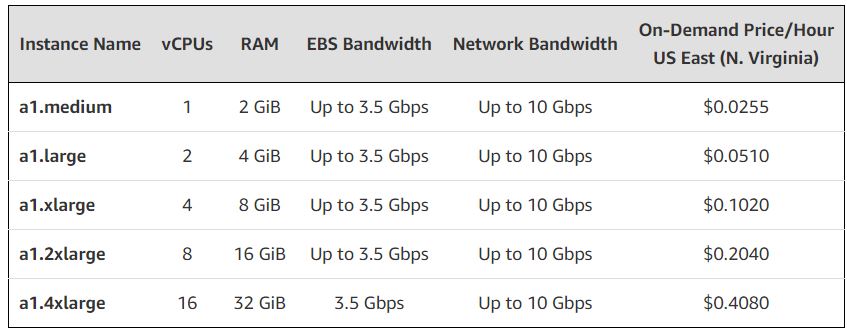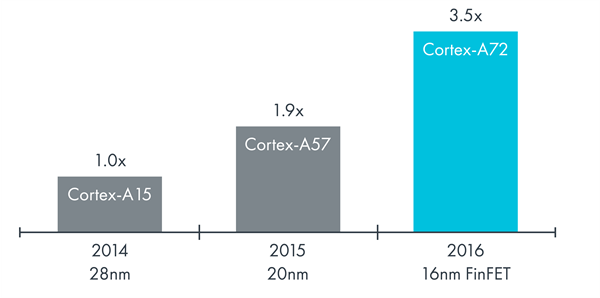AWS Now Offers Arm-based Compute Instances
Get Tom's Hardware's best news and in-depth reviews, straight to your inbox.
You are now subscribed
Your newsletter sign-up was successful
Earlier this month, Amazon Web Services (AWS), the largest public cloud services provider, announced that its cloud business would make AMD’s EPYC server chips available to its customers. On Monday, Amazon announced a new partnership enthusiasts might want to take note of in that its customers will be able to use its own Arm-based “Graviton” server chips.
Amazon’s Graviton Chips
In 2015, Amazon acquired Annapurna Labs, an Israel-based microelectronics company that became the firm’s chip-development group. Amazon later hired former employees of Calxeda, one of the first companies to try to enter the server chip market with Arm-based processors.
AWS’ chip-development division built the Arm-based Graviton server processors, which are now being made available in computing instances to all AWS customers for up to 45 percent lower prices than Intel or even AMD-based computing instances.
The Arm-based “A1” instances are best used by those who need to scale-out their services across many smaller instances. This could include containerized microservices, web servers, development environments and caching fleets.
The A1 instances are available in five sizes, as seen below:
Amazon said that applications written in scripting languages will work with no changes required for the Arm-based servers, but those that compile to native code will need to be rebuilt on an A1 instance.
Arm Arrives in the Data Center
Calxeda, previously known as Smooth-Stone, was one of the first companies to attempt to enter the Intel-dominated server chip market with Arm-based processors. The company, founded a decade ago, first announced an Arm-based server chip in 2010. Four years later, the company closed down because its Arm cores didn’t offer enough performance for even the most basic web applications. The company’s chips were made up of Arm’s Cortex-A9 CPU cores with low clock speeds of 1.1-1.4GHz. Many argued at the time that although Arm had potential to enter the server market, Calxeda may have simply been too early in this market with Arm-based processors.
Get Tom's Hardware's best news and in-depth reviews, straight to your inbox.
These days, Arm processors have much higher instructions per clock (IPC) performance and come with double the frequency, which makes Arm chips more competitive to Intel and AMD-based chips, even on a core-per-core basis.
Some have reported that A1 instances use Cortex-A72 CPU cores that go up to 2.3GHz in frequency. Cortex-A72 is not the latest high-performance Arm core, but it’s still a much more modern and data center-ready 64-bit chip compared to the 32-bit Cortex-A9 chips from almost a decade ago.
The upcoming Cortex-A76 promises laptop-class performance at mobile energy efficiency, while the server-focused derivative, Ares, should enable even higher performance at higher power consumption levels.
Other cloud companies will likely join Amazon in adopting Arm chips for their servers in the future as these chips get higher performance, while still offering significantly lower cost than the competition. Microsoft has already announced a Windows Server edition that supports Arm processors. It hasn’t yet adopted Arm chips in its Azure cloud service, but it committed to using Arm server chips from both Qualcomm and Cavium in the future.
Lucian Armasu is a Contributing Writer for Tom's Hardware US. He covers software news and the issues surrounding privacy and security.


